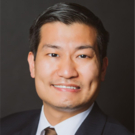Speakers

Tuqa Nusairat
Director for Strategy, Operations, and Finance, Rafik Hariri Center & Middle East Programs
Atlantic Council

Curtis Ryan
Professor of Political Science
Appalachian State University

Arwa Shobaki
Managing Director
Project on Middle East Democracy (POMED)

Sean L. Yom
Associate Professor of Political Science
Temple University
Moderator
About the Webinar
In a region full of conflicts, the Hashemite Kingdom of Jordan has long been touted as a beacon of peace, stability, and moderation. For this reason it continues to receive financial, military, and political support from its western allies. But for decades Jordan’s domestic politics have been caught between its efforts to ensure the stability of the country and the monarchy on the one hand, and intensifying popular discontent and sociopolitical mobilization on the other. Over the last several years, Jordan has witnessed renewed waves of protests and a growing political opposition movement that together reflect deepening political dissatisfaction and economic grievances, and that represent diverse segments of Jordanian society across economic, social, ethnic, and religious lines. Protestors have organized against rising food and fuel prices, corruption, repressive security forces, restrictions on speech and assembly, high youth unemployment rates, vanishing government subsidies, and the absence of the rule of law. In response, the Hashemite regime has presented several rounds of reform initiatives, the latest of which was the formation of the Royal Committee to Modernize the Political System in June 2021 with the aim of producing a 10-year reform plan to establish strong parliamentary governance and create new laws governing elections and political parties.
Event Summary
Curtis Ryan put the Jordanian government’s recent reform push in its broader historical, social, and political context, speaking of the country’s decades of political and economic reform efforts, its history of protests and street activism, its increasingly low voter turnout, and current skepticism due to the fact that multiple rounds of reforms have either not been implemented or were initially enacted but later repealed.
Tuqa Nusairat highlighted the significant concerns that the majority of Jordanians have regarding inequality, corruption, unemployment, and overall economic health, stating that these concerns are indeed well-founded, as Jordan has been under strain from an influx of refugees, the COVID-19 pandemic, and the global economic downturn caused by the war in Ukraine, as well as growing internal pressures that have led to substantial protests and demonstrations.
Arwa Shobaki focused on the many problems affecting Jordan’s youth, including an unemployment crisis, failing public trust, ineffective governance, corruption, nepotism, outmigration, and increased drug use and trafficking. Shobaki argued that what Jordanian youth want is civil and political rights, freedom of opinion and the press, economic development, and real efforts to combat corruption.
Sean L. Yom discussed the road map for political reform that the government released two years ago, and that ostensibly aims to fully democratize the country. Yom pointed to the long history of promised reforms that were never enacted, progress that has been incremental and slow, and the country’s dire economic situation and high youth unemployment rates as factors leading to the intensification of the cynicism that most Jordanians hold regarding the prospects for real reform.
Featured image credit: Flickr/Isam Bayazidi

